Why Hydrogen
Our Answer is Hydrogen
Hydrogen Utilization
The EU, Germany, France, China, and other countries have announced national hydrogen strategies. Japan is positioning hydrogen energy as an important technology for achieving carbon neutrality. Therefore, it is working on realizing a hydrogen society as a national project, and aims to achieve hydrogen energy that is competitive with fossil fuels by 2050.
In addition, the government provides subsidies to promote hydrogen activities.
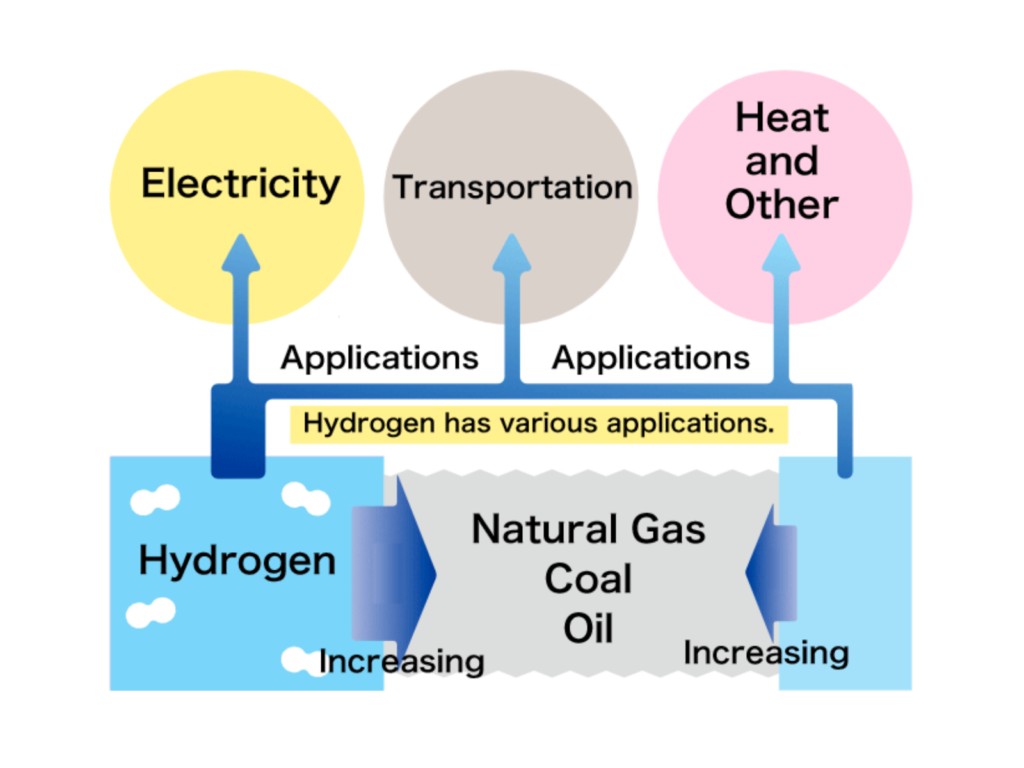
Hydrogen has many benefits
Characteristics of Hydrogen
To reduce global warming, we need to moderate the use of fossil fuels, and aim for carbon neutrality. To meet these ends, hydrogen energy is attracting attention around the world.
Achieving carbon neutrality
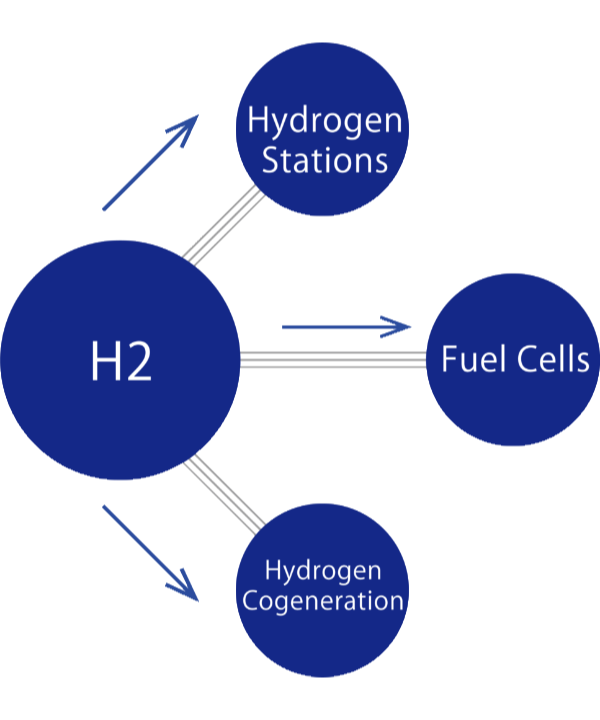
Hydrogen Applications
Familiar hydrogen use examples
It is widely known that hydrogen as a fuel source provides one of the most viable pathways to a net zero world.
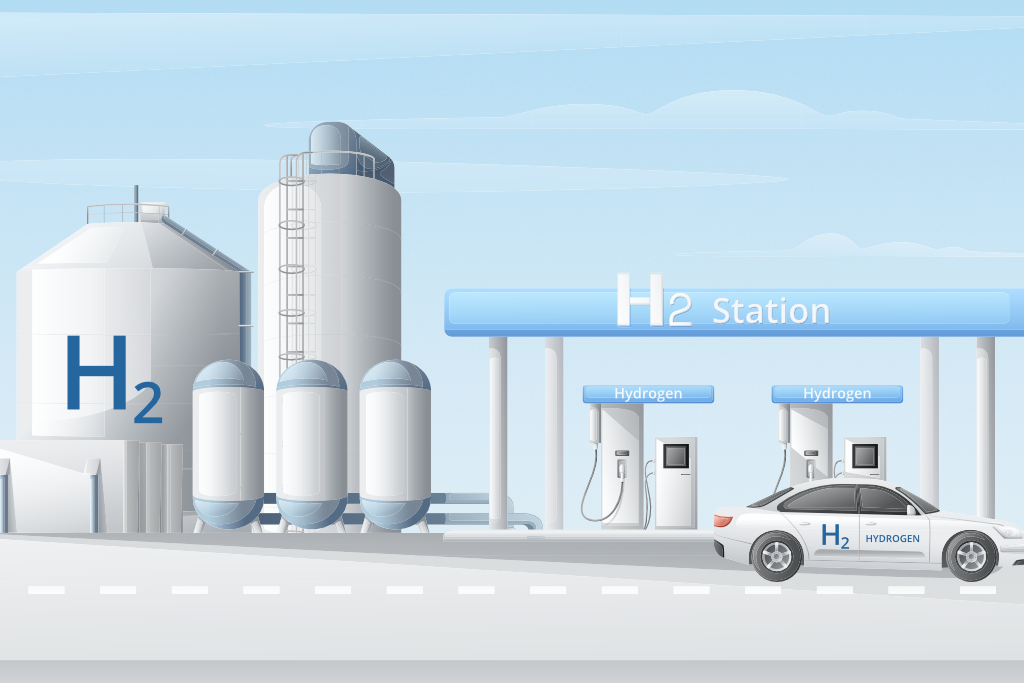
Hydrone stationS
A Hub for Hydrogen Refueling
Not Limited to Carbon Vehicles
Vehicles: Hydrogen stations are the primary locations for supplying hydrogen fuel to fuel cell vehicles (hydrogen fuel cell vehicles, FCVs). This enables vehicles to use hydrogen as fuel to generate electricity, emitting only water as a byproduct, making it an exceptionally clean mode of transportation.
Industrial Applications: Hydrogen is also utilized as industrial energy, and hydrogen stations play a crucial role in industrial processes.
Fuell CellS
More Than Just Electricity
Supply of Thermal Energy: Hydrogen can also produce thermal energy using fuel cells. It is utilized for various applications requiring heat energy, such as heating and industrial processes.
Backup Power: Hydrogen fuel cells can serve as backup power sources, particularly in emergency situations. Fuel cell power plants with hydrogen stations are installed in locations where a steady power supply is essential.
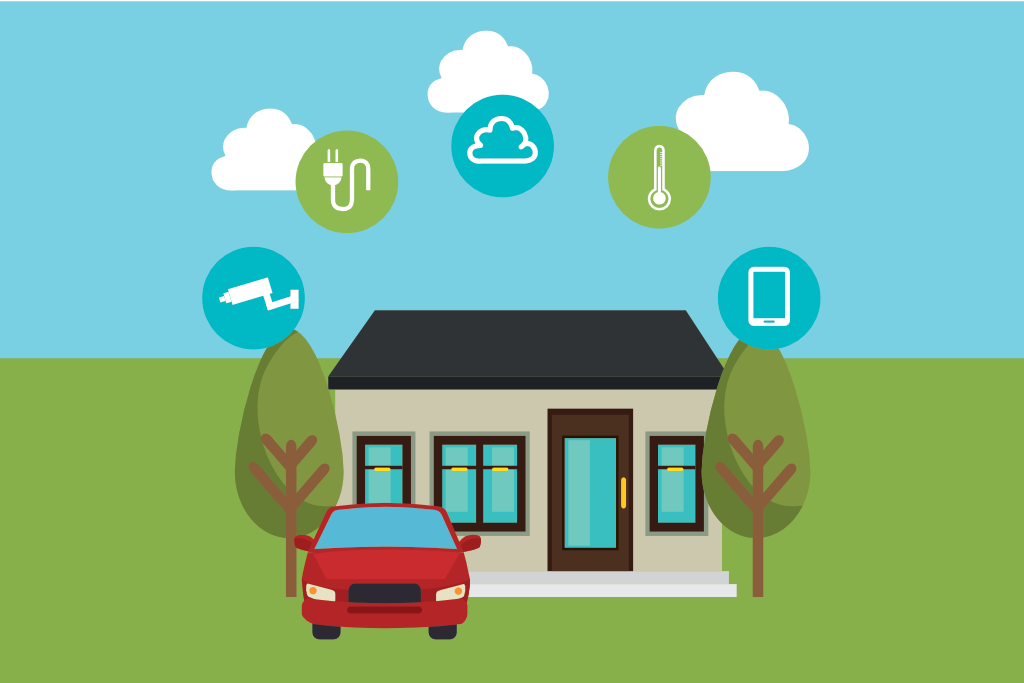
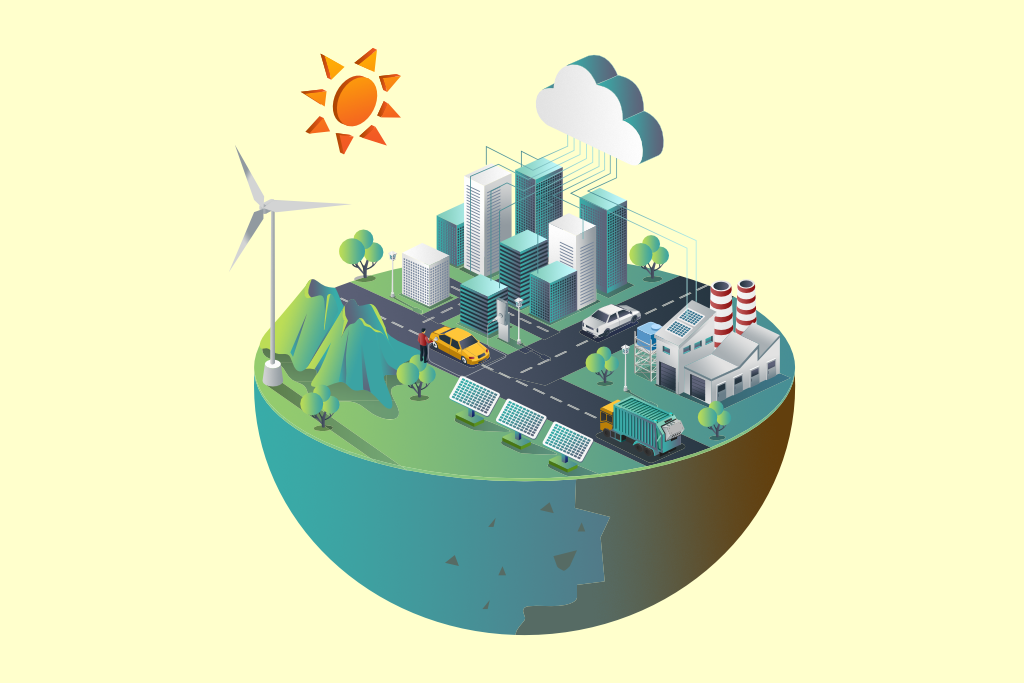
Hydrogen Cogeneration
Hydrogen Cogeneration in Urban Areas
as a Clean Energy System
Turbine Drive: Thermal energy is transformed through high-temperature, high-pressure steam driving turbine blades. The rotation of the turbine drives a generator, producing electricity. This thermal energy can be utilized for various applications such as heating and hot water supply. As a result, dual utilization of energy becomes possible, enhancing the overall efficiency of the system.
The Mechanism of Generating Electricity and Heat Using Fuel Cells
How Fuel Cells Generate Electricity and Heat Using Hydrogen

A fuel cell is an electricity generation device that utilizes the reverse principle of water electrolysis to produce electricity.
Fuel cells, despite being commonly mistaken as a type of battery due to their name, are, in fact, electricity generation devices that use the reverse principle of water electrolysis to produce electricity by reacting hydrogen with oxygen, resulting in the generation of electricity and water.
Unlike battery-based power generation, which requires charging, fuel cells will continue to generate electricity as long as fuel (hydrogen and oxygen) is supplied. They have even been used successfully in spacecraft. One of the significant advantages of fuel cells is that they can continuously generate power as long as you provide them with hydrogen and oxygen, and they produce water as a byproduct, which can be used as drinking water. In other words, as long as you can ensure a supply of hydrogen, you can generate power, especially on Earth, where you can utilize the oxygen in the air.
Hydrogen Market size
Hydrogen is expected to become a ¥50 trillion industry by 2030.
Hydrogen produced during the manufacturing process without CO2 emissions.
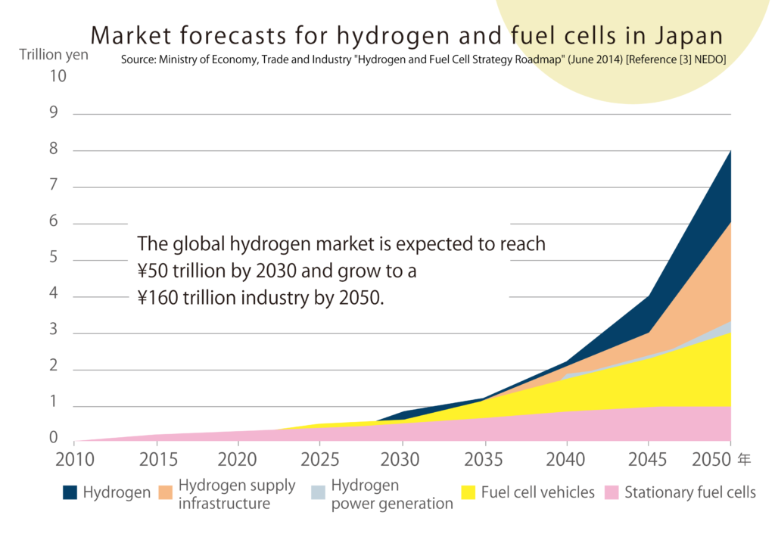
Next-Generation Energy: Hydrogen
The number of announced projects for low-emission hydrogen production is rapidly expanding.
Hydrogen market will become a 50 trillion yen industry in 2030.
We will shift all waste in Japan to renewable energy, and all waste in the world to renewable energy at the same time.
Efficient utilization of Hydrogen
Hydrogen can be used in a variety of applications, including:
Power generation

Hydrogen and ammonia can be used in gas turbines to increase power system flexibility.
Fuel cells

Hydrogen can be used to generate electricity, or power and heat.
Blended into natural gas networks

Hydrogen can be blended into existing natural gas networks, with the highest potential in multifamily and commercial buildings.
Hydrogen boilers

Hydrogen could be used in hydrogen boilers.
Transportation
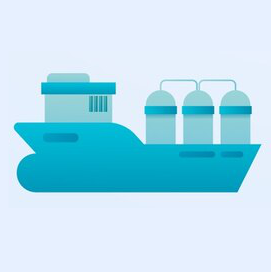
Hydrogen has emerging markets in transportation.
Why Choose Us
The Potential of Hydrogen
Our plant can produce …
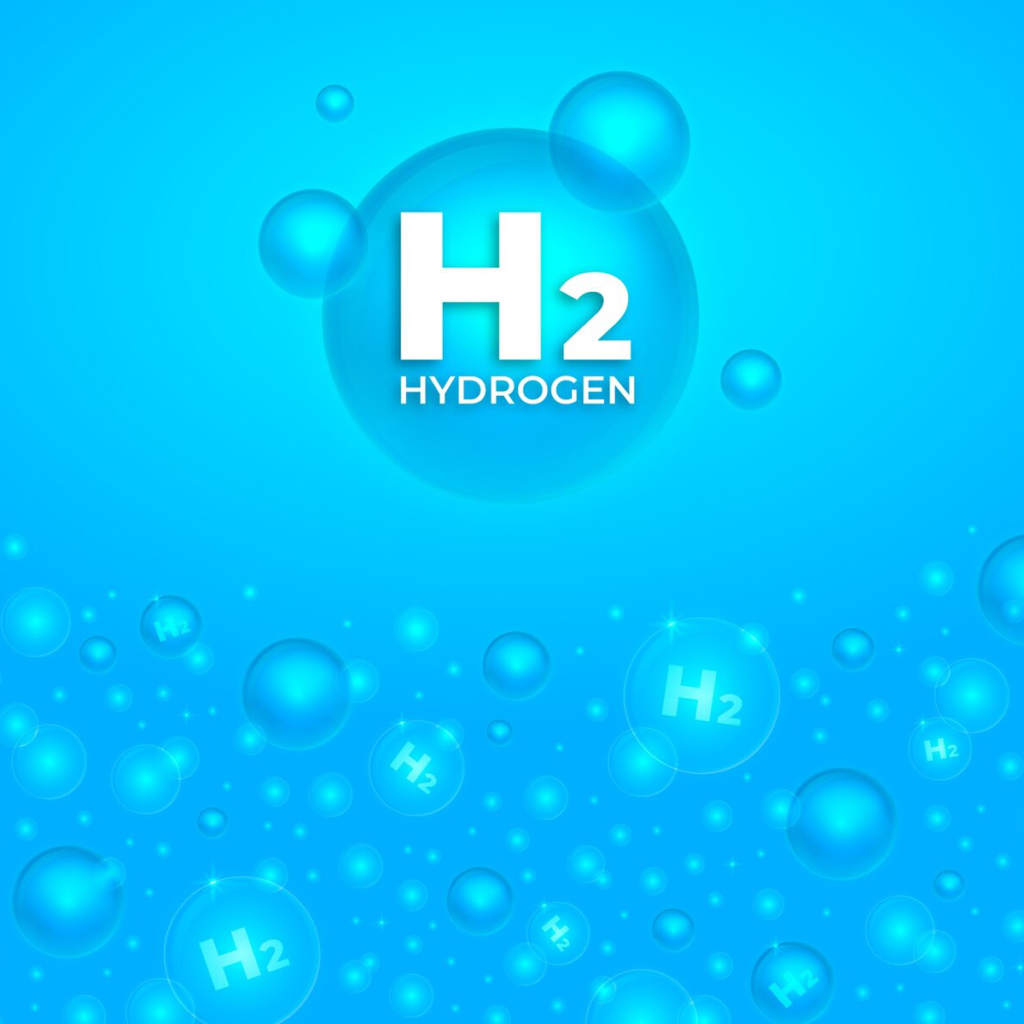
6,500
tons of Hydrogen / year !
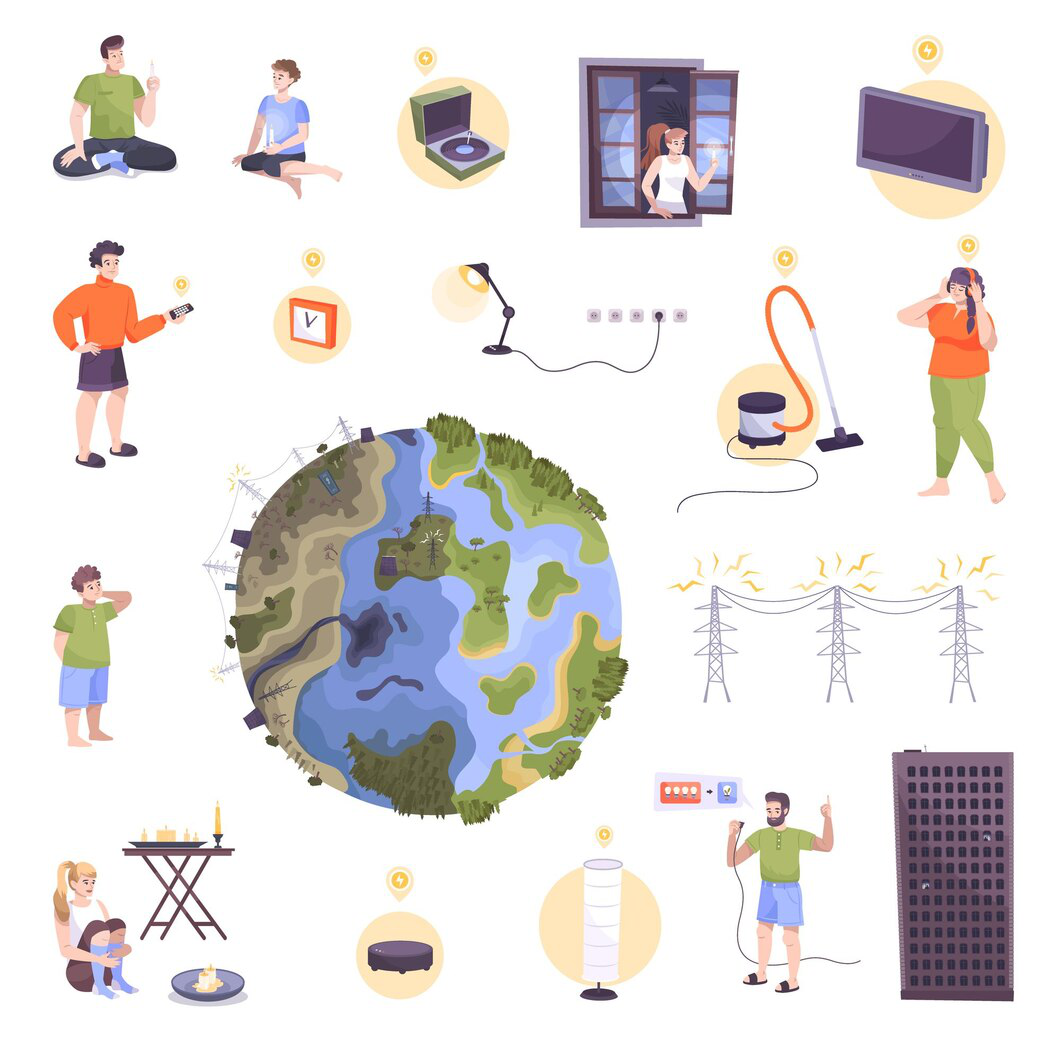
40,000
people electricity / year !
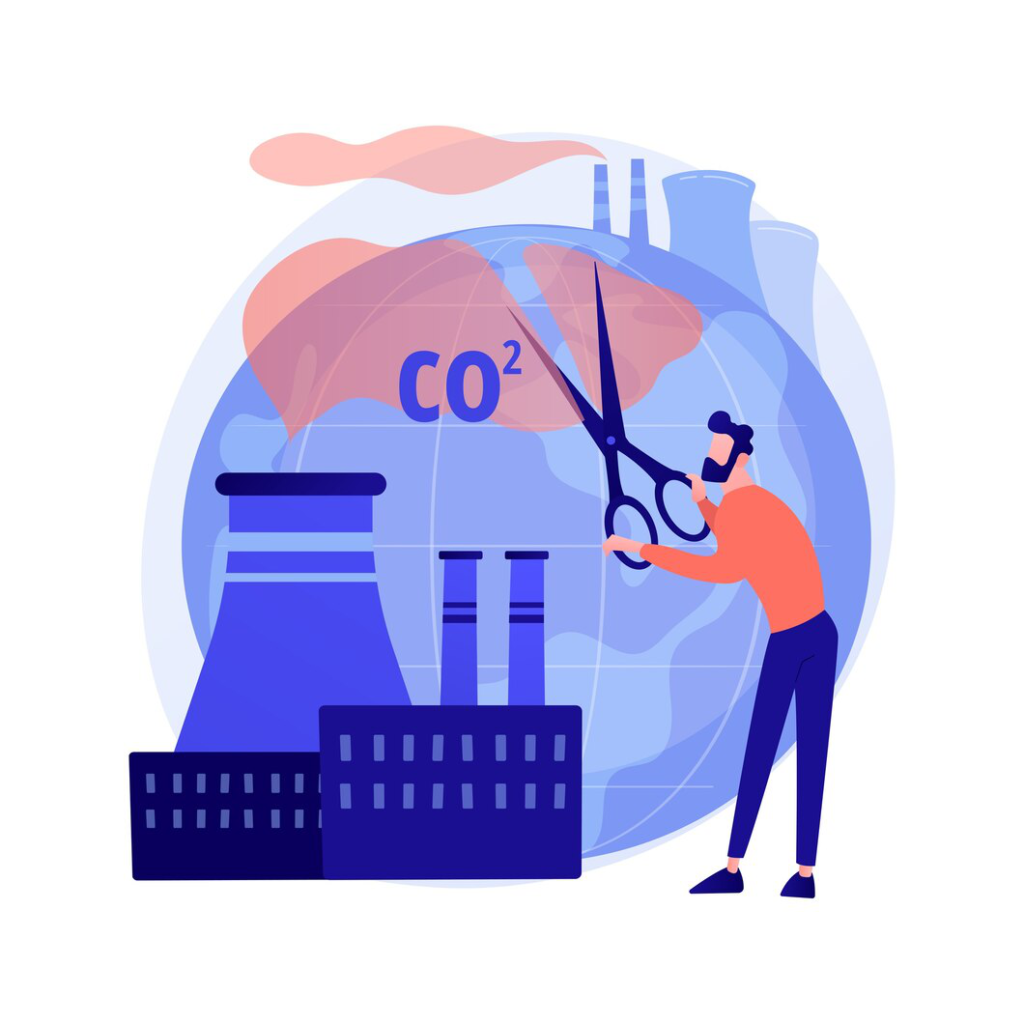
55,900
tons CO2 emission reduction / year !
Hydrogen has the potential to play a significant role in reducing CO2 emissions, particularly in the context of electricity generation and transportation.
However, it’s worth noting that the widespread adoption of hydrogen as a clean energy solution faces challenges such as high production costs, infrastructure development for storage and distribution, and technological advancements to improve efficiency. Additionally, the environmental benefits of hydrogen depend on how it is produced; if hydrogen is produced from fossil fuels without carbon capture and storage, it may not significantly reduce CO2 emissions. Therefore, for hydrogen to realize its full potential in reducing CO2 emissions, it needs to be produced using renewable energy sources and integrated into a comprehensive strategy for decarbonizing the energy sector.
BIOTECHWORKS-H2 has pioneered a revolutionary system, avoiding Greenwashing. We are committed to establishing a comprehensive Circular Economy by converting Waste into Energy. Rest assured, we will provide consulting services for the management and construction of stable hydrogen plants, as well as traceability tools for the entire hydrogenation project.
Our plants convert waste into high-value energy products such as electricity, diesel, hydrogen, and RNG.